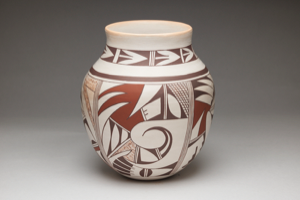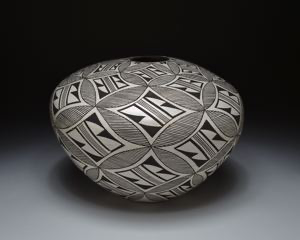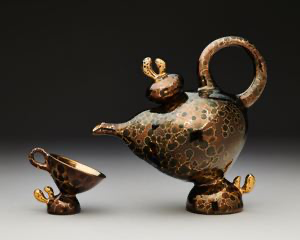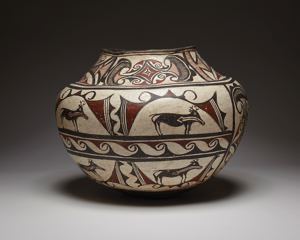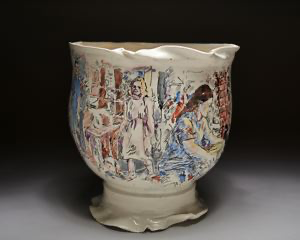| Showing 34 of 90 |
| FILTER RESULTS | × Close |

 by Artist (80)
by Artist (80)
Alan Bennett
2
Alice Martinez
1
Andrew Watson
1
Angela Baca
1
Barbara A. Diduk
1
Beatrice Wood
1
Bertha Tungovia
1
Brad Adams
1
Brad Schwieger
1
Carol Calabaza
1
Catharine Hiersoux
1
Charmae Shields Natseway
1
Christine Federighi
1
Christopher Staley
1
Chuck Hindes
1
Darlene Nampeyo
1
David Pendell
1
David Shaner
1
David Zweifel
1
Debbie Brown
1
Diane Otte Shaw
1
Donald Johns
1
Dora De Larios
1
Dorothy Bearnson
1
Douglas K. Casebeer
1
Edna Romero
1
Elaine Coleman
1
Elizabeth Enyeart
1
Eunice Navasie Fawn
1
Frances Senska
1
Frank Boyden
2
Gaell Lindstrom
1
Gerald Newcomb
1
Gerry Williams
1
Grant Virdin Reber
1
Harrison McIntosh
1
Henry Mead
1
James Lovera
1
Jerry Rothman
1
Jessie C. Garcia
1
Joel Edwards
1
John Neely
1
John Takehara
1
Joseph G. Brown
1
Joy Navasie
1
Juanita Shije
1
Judy Hiramoto
1
Kelvin Yazzie
1
Ken Harju
1
Laura Andreson
3
Lynn R. Munns
1
Magdalena Suarez Frimkess
2
Mark Prieto
1
Mary Archuleta
1
Maurice Grossman
1
Mel Rubin
1
Nils Lou
1
Otto Heino
1
Patrick Crabb
1
Paul Soldner
1
Peter Voulkos
1
Philip Cornelius
1
Regal China Corporation
1
Richard Fox
1
Richard Notkin
1
Rick Dillingham
1
Robert Arneson
1
Robert Bennett
1
Robert Sperry
1
Ron Nagle
2
Rose Cabat
3
Rose Naranjo
2
Rudy Autio
1
Susan Peterson
1
Toshiko Takaezu
1
Viola Frey
1
Virginia Cartwright
2
Virginia Lowden
1
Von Allen
1
Wayne Higby
1

